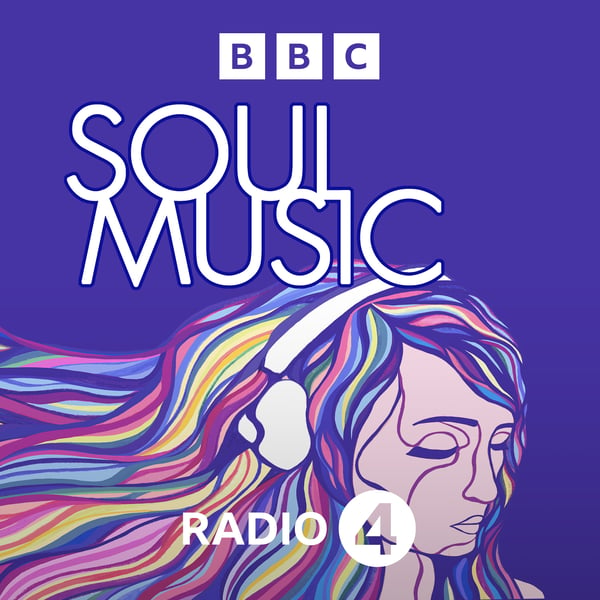Bruch's Violin Concerto
Soul Music
BBC
4.7 • 772 Ratings
🗓️ 18 June 2022
⏱️ 28 minutes
🧾️ Download transcript
Summary
A Violin Concerto in G minor, Opus 26, became the best-known work of the German composer Max Bruch. Originally written in 1866 it went through many revisions before finally being completed in 1867. It was performed extensively but having sold both the publishing and the manuscript Bruch died in relative obscurity in 1920. The Concerto would continue to be played around the world and the second movement in particular, the Adagio, became a much-loved favourite.
Journalist Claire Read describes how much her Mother loved the piece after Claire learned and performed it in school, and how she would listen to it whilst being treated for cancer.
Ukrainian violinist Kostia Lukyniuk recalls playing it with an orchestra in his home town aged 11, and how music still gives him strength as he plays for those battered by the Russian invasion of his home country.
The second movement brings back fond memories for Archers actor June Spencer who listened to it with her husband and their friends on a veranda in Minorca.
Leader of the Welsh National Opera David Adams was inspired to take-up the violin after listening to a recording of David Oistrakh playing this piece, and later performed it at the Fishguard Festival. It was a favourite of his Mum's and that recording was played at her funeral.
The Carnegie Hall was the setting for violinist Shlomo Mintz's most treasured performance and he describes how it feels to play those soaring melodies.
Curator Robinson McClellan at The Morgan Library & Museum in New York explains how the manuscript of this concerto made its way from Germany to the USA, and why this work would later become a source of resentment for this 'establishment' composer.
Studio Manager: Ilse Lademann Produced for BBC Audio in Bristol by Toby Field.
Transcript
Click on a timestamp to play from that location
| 0:00.0 | Before you listen to this BBC podcast, I'd like to quickly tell you about some others. |
| 0:05.2 | My name's Andy Martin and I'm the editor of a team of podcast producers at the BBC in Northern Ireland. |
| 0:11.3 | It's a job I really love because we get to tell the stories that really matter to people here, |
| 0:16.3 | but which also resonate and apply to listeners around the world. |
| 0:19.6 | And because the team is such a diverse |
| 0:21.2 | range of skills and strengths, we have trained journalists, people who love digging through |
| 0:26.0 | archives, we've got drama and even comedy experts. We really can do those stories justice. So if |
| 0:31.8 | you like this podcast, head to BBC Sounds where you'll find plenty more fascinating stories |
| 0:37.1 | from all around the UK. BBC Sounds where you'll find plenty more fascinating stories from all around the UK. |
| 0:39.9 | BBC Sounds, music, radio, podcasts. |
| 0:53.3 | I think it sounds like a hug. The second movement especially, it's like a warm blanket. |
| 1:01.8 | My name's Claire Reid. I'm a journalist. When I was three, I used to ask if I could play the violin all the time, |
| 1:11.7 | and it's kind of a bit of a mystery in the family, why I suddenly wanted to do that. |
| 1:16.6 | And we'd pass like a musical instrument shop on the way into town, |
| 1:20.6 | and I would stop and look in the window every time at the violin and be like, |
| 1:25.3 | oh, I want to play, I want to play. |
| 1:29.0 | And my mum, she thought it was a phase, so she just let me keep asking. And then after a year of asking, she thought, |
| 1:34.6 | okay, fine, let's try. And the only person who would take me at that young age was a Suzuki |
| 1:41.2 | teacher. So Suzuki is the method where you don't read music for the first few years. |
| 1:47.0 | You learn by ear as if it's a language. |
| 1:50.0 | In Suzuki, they encouraged the parent to learn as well. |
| 1:53.0 | So my mum started learning alongside me. |
... |
Please login to see the full transcript.
Disclaimer: The podcast and artwork embedded on this page are from BBC, and are the property of its owner and not affiliated with or endorsed by Tapesearch.
Generated transcripts are the property of BBC and are distributed freely under the Fair Use doctrine. Transcripts generated by Tapesearch are not guaranteed to be accurate.
Copyright © Tapesearch 2025.

